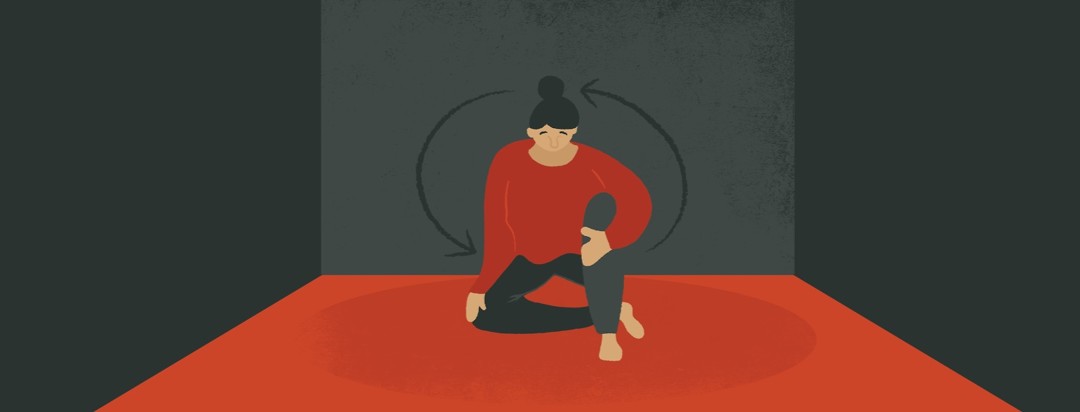The Connection Between Anxiety And Endometriosis Flare-Ups
As an endometriosis patient, managing my mental health is very much part of my daily life. As an advocate, it is frustrating seeing this key part of our health often overlooked by the physicians treating us. There is a strong connection between our levels of stress and anxiety, and how our body metabolizes them.
The kind of anxiety I suffer from develops into physical symptoms quite fast. I experience peaks, either in the morning, after a sleepless night, and, very often, right before and during flare-ups. While life can increase my stress levels, my illness triggers my anxiety super easily. Sometimes I struggle with my emotions, which results in a flare-up, followed by scarier thoughts, and just like that, an endless cycle begins.
During a flare-up, I get frustrated at my inability to carry on with my daily tasks, I foresee things I cannot do, and feel like my life has no purpose. Sometimes, I overthink a particular symptom and become convinced that a tug on my ovary is not ovulation pain, but most definitively something deadly.
In the past months my anxiety has turned into chest pains, heart palpitations, and when I am at my worst, bleeding. It kept happening, so I went to my doctor and had some heart tests done. I was also gynecologically examined via an ultrasound. The results showed nothing new or out of the ordinary.
Sometimes a flare-up is being caused by stress, and nothing else
During trying times, my skin becomes plagued with acne. I take progesterone to suppress my periods, so the occasional spotting is to be expected. Yet, following a crisis of anxiety it never fails, I will bleed much more. It is how my body translates the hormonal changes that are being tested by my fight or flight mode. The medical tests I had done only showed that my body was turning my high levels of anxiety into physical manifestations.
The research that connects endometriosis with anxiety exists and is very conclusive: Patients with endometriosis have a higher risk of developing anxiety, depression, and other psychological symptoms.1
Our anxiety levels will either lessen our worsen any discomfort. If a painful flare-up starts, and our stress escalates, our bodies will tense up, and our levels of pain will increase. This requires conscious management, and there is no right or wrong approach, but what works for each patient.
Meditation is not for everyone and that is OK
Meditation has stopped working for me when my anxiety is high. In fact, it worsens it. Instead I try to find an activity that helps me focus quite passively. Sometimes I listen to music and leave my phone far from reach, so my attention goes to the music and nothing else. Others is knitting. If I really can’t do much, listening to a podcast I find interesting will allow me to stop the circle of thoughts in my head. Once my thoughts are in check, my breathing will slow down, and any physical symptoms will lessen in intensity. If I can calm down enough to fall asleep, I call that a massive success.
If you are not comfortable talking about your mental health with your doctor, find a therapist
I am very fortunate to have a therapist that has known of my condition for a while. I turned to her, after receiving no particular guidelines from my doctor. When we talk, she reminds me of things that work and encourages me to go into self-care mode. Nothing else matters.
Anxiety is a condition so many of us struggle with, and receive very little support. If someone is having a crisis of anxiety or a panic attack, telling them calm down, meditate, or do some yoga is often unhelpful. Flare-ups can be incredibly unsettling.
Our minds need as much care as our physical health. And since stress and anxiety can wreak havoc with our bodies, recognizing this is the first step towards a better existence.

Join the conversation